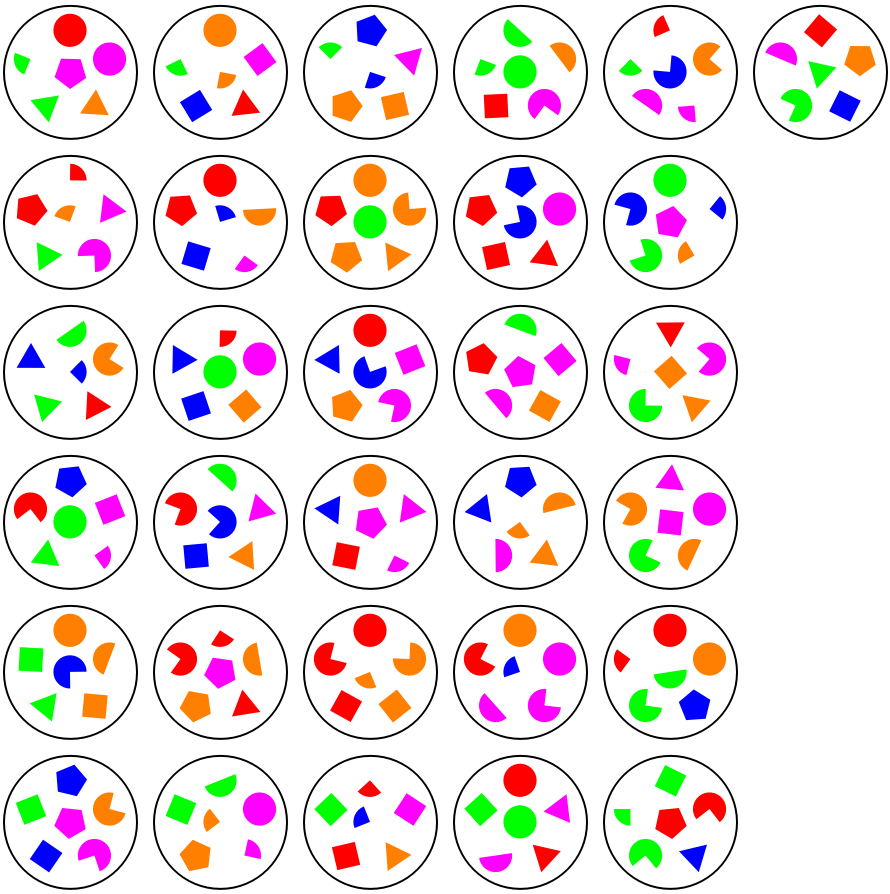Wolfram Function Repository
Instant-use add-on functions for the Wolfram Language
Function Repository Resource:
Generate a set of integers that can create Dobble cards
ResourceFunction["DobbleSets"][n] generates n2-n+1 sets, each with n numbers, where each pair of sets only has a single number in common. |
Create a small Dobble set:
| In[1]:= |
| Out[1]= |
Verify that each pair of sets has a single number as overlap:
| In[2]:= |
| Out[2]= |
Large sets can be created for primes + 1:
| In[3]:= |
| Out[3]= |
Verify that each pair has a single number as overlap:
| In[4]:= |
| Out[4]= |
Not all sizes are possible or are unknown:
| In[5]:= |
| Out[5]= |
Generate a set of Dobble-inspired cards where each two cards have only one symbol in common:
| In[6]:= | ![SeedRandom[2];
n = 6;
s = ResourceFunction["DobbleSets"][n];
colors = {Red, Green, Blue, Orange, Magenta};
shapes = Join[RegularPolygon /@ Range[3, 5], Disk[{0, 0}, 1, {0, #}] & /@ Range[Pi/2, 2 Pi, Pi/2]];
shapes = Join @@ Outer[Style, shapes, colors];
shapes = RandomSample[shapes, Length[s]];
pos = Join[{{0, 0}}, CirclePoints[2.5, n - 1]];
cards = MapThread[
Translate[
Rotate[#1, RandomReal[{0, 2 Pi}], {0, 0}], #2] &, {shapes[[#]],
pos}] & /@ s;
Multicolumn[
Graphics[{#, Circle[{0, 0}, 4]}, ImageSize -> 70] & /@ cards]](https://www.wolframcloud.com/obj/resourcesystem/images/0d6/0d62f6fa-ee1d-4a7d-9725-b974dc29f6f6/5e3f1dce1c4d5668.png) |
| Out[6]= |  |
This work is licensed under a Creative Commons Attribution 4.0 International License